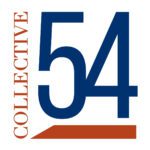In this insightful case study, we delve into the remarkable journey of a nimble 10-person professional service firm as they navigate the complexities of selling their business to a 300-strong industry leader. From leveraging their specialized expertise to fostering a culture that resonated with their larger counterpart, this session discusses the key steps taken by the smaller firm to position themselves as an indispensable asset, paving the way for a merger that promises to be a win-win for all parties.
TRANSCRIPT
Greg Alexander [00:00:10] Hi, everyone. This is Greg Alexander, the host of the Pro Serv Podcast, brought to you by Collective 54, the first community dedicated to founders of small services firms that are trying to grow, scale, and someday sell their firms. On today’s episode, we’re going to talk about exiting a small service firm. It’s a very precise thing to do. It doesn’t happen a lot. So when it does happen, we want to shine a light on it and learn as much as we can. And we have an alumni of Collective 54 with us, Bart Mroz. Bart was on an episode of our show before way back in the day Episode 72. I think we’re like in the one seventies now, so it’s good to see you again. Bart. Would you please reacquaint yourself with our audience and provide us an introduction?
Bart Mroz [00:01:05] Absolutely. It’s great to see you, Greg. Yeah, so I am for the last 13 and a half years, ran company called Sumo Heavy. We were an eCommerce consulting firm and button shop, working closely with enterprise level clients. We, I think, talk we’re talking about Discovery’s if on the rack.
Greg Alexander [00:01:29] Yeah, you walked us through that and how that led to kind of long standing client relationships, which was an awesome episode.
Bart Mroz [00:01:36] Yeah, it was fantastic. So funny enough, I am an alumni of of the group. Part of it is because I was going through this all through the year. So.
Greg Alexander [00:01:49] So yeah, so let’s talk about this. So I read the press release and thank thank you for sending that. I was so happy for you in your team. It’s the conclusion of an entrepreneurial journey. I know you’re still there and you’re still building, but it is a chapter in the story of an entrepreneur when this happens. So I just I want to start at a high level and just, you know, have you tell everybody what happened? And then I’ll have some questions for you.
Bart Mroz [00:02:16] Sure. Where do I start? About a year ago. A little bit over a year now. I was needing to get out of the house and randomly went to. I was living in Princeton, New Jersey, randomly went to a place and bumped into now our VP of Innovation at the at ATX, which is my new company and just had a good chat with it and just randomly ran into somebody. And it it kind of took that took it to a conversation with them and then they came to Val was like, If you are ever willing to sell your company, let me know. And about six months later, I had a conversation. My business partner were kind of looking at what the market looks like. What are we doing after 13 and a half years is like, are we going to grow this or is there other avenues that we can have? And I gave him a call and then work through the summer and and we got to this point and then on September 1st we are fully acquired, which is always a challenging find. But as a smaller firm, it was it was interesting to go there.
Greg Alexander [00:03:29] You know, the fact that this was a random encounter, you know, it makes you wonder if if the cosmos was lined up for you here and you were doing the right thing, that that’s a very hard luck.
Bart Mroz [00:03:41] But also part taken that luck. Right? It’s the serendipity of it. Yes. It’s probably partially putting out there that there’s some need. But also, you know, people say is like always in luck. I think it was a luck thing because, you know, 30 minutes before or third means after walking, you know, until place, it could have changed it. Right. But then taking that opportunity that’s in front of you and have conversation with somebody random kind of get you to that point.
Greg Alexander [00:04:09] Yeah. I mean, we’ve got to make the most of our lucky breaks and and not waste them. I get it totally. So what I was particularly interested to talk to you about today, because it’s so relevant to our community, is that you had a ten person firm and a lot of people feel that a ten person firm is a non sellable firm, yet you proved all those people wrong and you were able to sell your firm. So how did you overcome that and how did why was is it it is that right? Why was this why was it interested in you all?
Bart Mroz [00:04:42] So at our height, so we’re 13 years, 13 and a half years, almost 14 at our height, we’re actually 30 and meaning 30 with our contractors, and we’re about 12. 13 at the most here in the States. But because we had this efficient, nimble kind of company, we got to work with larger clients, got to work with them long term. Have some way of a different way of working. As with our last podcast, it was about doing discoveries and discoveries. Because of that, it’s all our being the process and how we work and how we work with our clients. And the fact that we had long term clients was attractive to a bigger company, but also for us from our perspective. Once we started talking to them. It became very clear that there just a very large version of us. We’re like a micro version, meaning our culture is the same. We kind of think the same way. We want to go after the same things. It kind of became clear this is making more and more sense. Now, this was, you know, we got acquired in this one, but this was not our first go at trying to get acquired. We’ve done it two years beforehand and it just didn’t fit what we wanted. And we said no, 80% because of culture. And 20% of because money just made it financially didn’t make sense. Like it just it wasn’t working. The numbers didn’t make sense and all that. So a lot of it was culture or a lot of was that the other side of it for us was having access to a bigger. Of services. You know, we’re very structured on e-commerce, but we’ve never had UX or design or marketing or other things we were trying to pursue. Now we do, you know, it takes us 300 people. So it’s a bigger company. We have a lot more services. On the other side of that, I it had a little bit of econ going on with them. With us, they have the knowledge base now of bigger econ that they can kind of pursue.
Greg Alexander [00:07:06] Yeah. You know, the lesson here for those that are listening is that when a large firm is thinking about buying a small firm, they often go through a framework called Build, buy or partner.
Bart Mroz [00:07:19] Mm hmm.
Greg Alexander [00:07:19] And what I mean by that is they’ll have a gap in their service offering. So in Bard’s case, that was AECOM. And they say to themselves, okay, if we want to fill this gap ourselves, we’re going to build it. Here’s how long it’s going to take his on which money it’s going to cost. And here’s the probability of success. If we were to go partner with somebody. You know, who are those partnerships and same conversation. How long, how much in probability success. And if we buy someone, same thing. So if I compare those items, you know, as a larger firm, what’s better for me, it’s it’s a a way to think through the options. So obviously, in Bart’s case, it just made a lot more sense for them because they could go faster, they had a greater probability of success and, you know, the cost was comparable. So why not go ahead and and buy a firm like Bartz and bring them in? Yeah.
Bart Mroz [00:08:06] I mean, you’re, you’re looking at you know, do you bring like this is this was our problem too. Like we at least twice a year we would think about do we build design and use sort of practice internally every year, twice a year without fail? And we just never did it. Right. But also, you know, when you’re doing this, you’re acquiring not only the the staff, the team members who are knowledgeable, especially in small firms, they probably have a lot of senior people because they’re willing to do that work, especially if they’re working with bigger clients. There’s growing client. So you have both. Right. You have not only the knowledge base, but also clients, and then you can bring all that knowledge base. You know, it’s a nice circular thing. It just beneficial to every single step.
Greg Alexander [00:08:49] Yeah, for sure. And it’s beneficial to everybody, including the client, because now you have more things to offer the client, and that’s normally how the justification gets made. The business justification is. So Bart had a great client roster and I t-x, you know, wanted access to that roster and vice versa. I text probably had a great client roster and you guys want access to it. So then the question is, okay, so if we join forces is one plus one equals three here. And obviously it did. So that’s part of the equation. So if you’re if you’re a smaller firm and you’re thinking about selling, you got to ask yourself that question, like, what is the synergy? I don’t mean the cost synergy, I mean the revenue synergy. If we shared clients and we had brought a service set, you know, how much more revenue could we drive by? My next question was I was I was reading in prep for this interview some of the local press that that covered you, by the way. I had no idea you were such a towering figure in the local tech community. Congrats.
Bart Mroz [00:09:41] Not but thank you.
Greg Alexander [00:09:43] A lot of the articles were people worried about, you know, you leaving and not participating in all that. One of them classified your acquisition as an acqui hire, which is the merging of two words, an acquisition and a hiring of a team called an acqui hire. Very common in the tech world, not as common in the service world. So that intrigued me. Is that a fair description as to what happened in or not? And what do you think about this idea?
Bart Mroz [00:10:12] It’s a very it’s actually, Greg, I’m going to correct you, but it’s actually very common right now. Is it really.
Greg Alexander [00:10:17] Interesting?
Bart Mroz [00:10:18] Oh, yeah. The same day that we got acquired, one of my friends companies that I acquired Acquired like that. Yeah. So basically the idea is they’re they’re hiring you and they’re acquiring you, basically acquiring, you know, your clients or your things, but also hiring rest of your team. Yeah. So for me, it’s not like the whole team went. So we are now owned by biotechs, Right. But it’s still within those. Rob’s right, my friends. Like, I think the same they I would say four different companies, one within. Between and every single company was between ten and 20 people. Wow. Yeah. From from different. You know, they got fired by other places, obviously, but literally same day and all friends. But yeah, we we all knew this was all happening at the same time, which was really funny. So it’s it’s in service business right now is is that is going to happen and I think that’s it’s a correct statement. I don’t you know some people think it a bit as a as a bad thing. I think it’s fine. I think it’s it’s I feel like it’s worse when it’s a startup, you know, it gets acquired and then it’s like, oh, it’s purchase and stuff like that. When it comes to services, I mean, there’s, you know, we’re not billing it or not. We don’t have technology to sell. We just have humans and humans making things for other clients, right? So it’s it is what it is. Yeah. And I think that’s a good thing. It’s, it’s not it’s, I think it’s a better thing when it comes to service companies because they’re, they’re actually acquiring the whole thing with the team members and the team players don’t get fired, you know, then they lose their jobs. They’re still they’re still there. You know, I.
Greg Alexander [00:11:57] Mean, I agree. I agree. I think it’s a it’s a much better thing. And I personally don’t view the term as a negative term. I view it as a positive term, although I have read the things that you’ve read where sometimes people talk negatively about it, particularly in the startup context, as a way to kind of firesale a failed startup. But in services it says it’s a people business. It makes a lot of sense and it’s just it’s a mechanism to get a deal done. And I think for the smaller firms, let’s say sub 50 people, it’s an avenue worth pursuing if if that’s something that you want to do. So. So what’s life like for you now that you’re part of a bigger firm?
Bart Mroz [00:12:37] It’s been it’s been two months, literally, actually two day. So eight weeks. Stressful, crazy, fun all at the same time. You know, as you can imagine, I’m coming from doing a lot of the admin stuff and a lot of sales and that things that that, you know, that requires company to do My business partner was the production side of it and delivery. So he’s stepping into having a delivery team that’s his that’s still our you know, our people. I’m step by step into the sort of the sales operation or what we call engagement leads the management and sales that’s side. And I’m actually really happy to have four or five coworkers in that space now because I was doing this by myself. Yeah, so that’s kind of fun. Um, it’s still, it’s a little bit stressful just because moving, you know, moving your clients over, getting all of those, all those things wrapped up and moving stuff around. Like that’s a lot of stuff while trying to get through, you know, learning all the processes internally for the new company. Also at the same time, having my own sort of business that’s going on at the same time for the company. Um, but that’s going to settle down. It’s slowly settling down of story, you know, starting to get the hang of it and but it’s exciting. I think it’s exciting. A new chapter, you know, you are so used to doing your thing for I mean I did on my own for besides, you know, I’ve been on my own for 20 years on which is kind of fun Now, I haven’t worked for somebody for 20 years. And so that’s kind of a change of pace.
Greg Alexander [00:14:13] What’s it like having a boss?
Bart Mroz [00:14:15] I have to. It’s great. Oh, well, believe it or not, I am. I am a happy camper. I have good people above me, good people working with me. And this is kind of funny, but I have no on working for me. Weirdly, I’m okay with that for the moment and not that like our team members were not. They’re great. They’re great people. It’s awesome. Just a just a breath. Taking a breath, I guess, is a good thing.
Greg Alexander [00:14:42] Yeah. Awesome. All right, listen, we’re at our window here, but congrats to you and your team. I’m really happy for you. I can tell by listening to you and looking at you how happy you are. So that makes me feel great. So congratulations, man.
Bart Mroz [00:14:57] Thank you so much, Greg.
Greg Alexander [00:14:58] All right. All right. A few calls. Action for those that are listening. So if you’re a member and look for the meeting, invite for a board session with us, or you could be able to ask some questions to him directly. If you’re not a member, you want to become a member, go to the website and collected 54 and hit apply and we’ll get in touch with you. If you just want to learn more, check out the book The Boutique How to Start Scaling Sell a professional services firm on Amazon. Okay, Thanks, everybody. We’ll talk to you next time.



